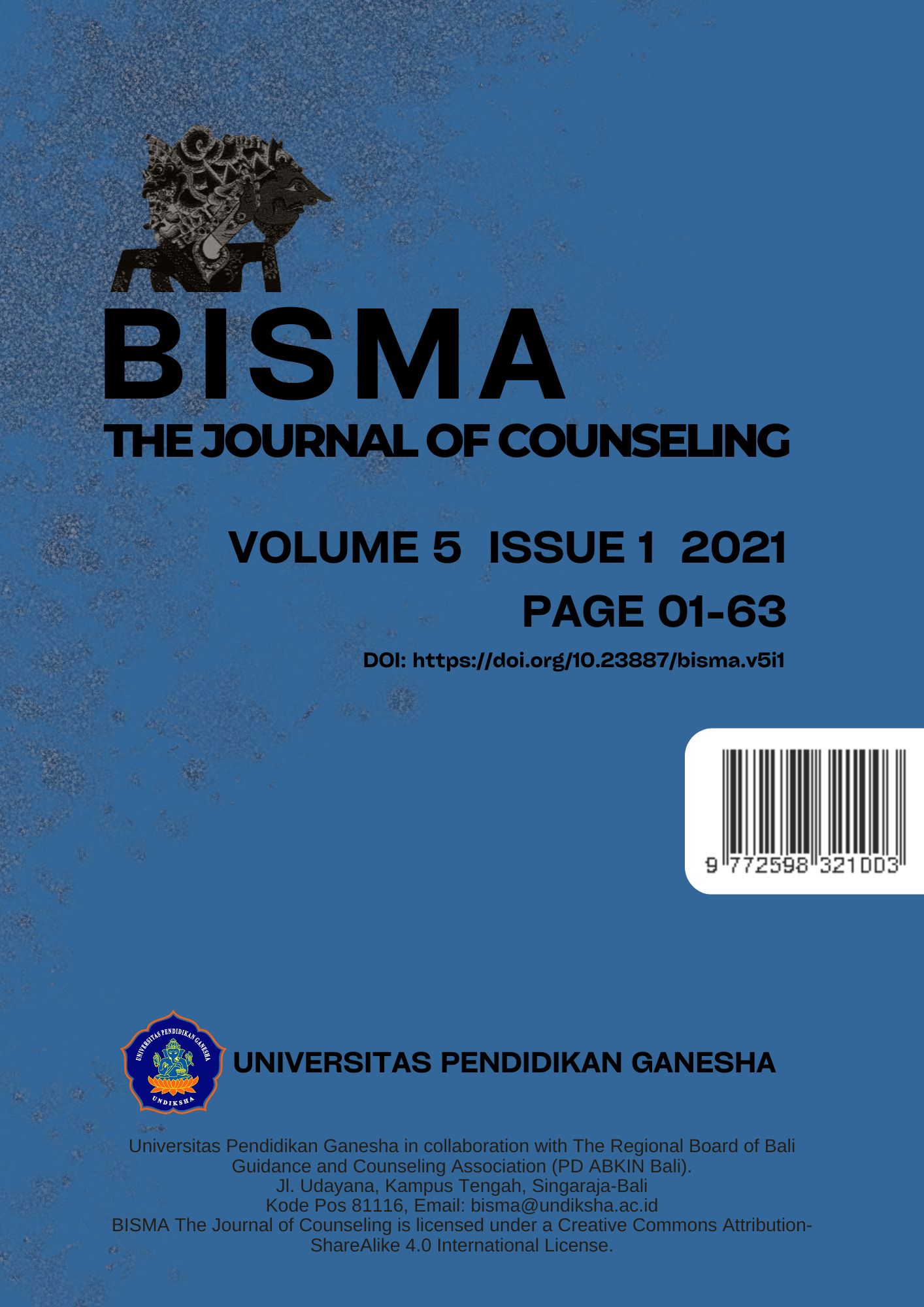The Impact of Online Learning on the Learning Motivation of Junior High School Students
DOI:
https://doi.org/10.23887/bisma.v5i1.35980Keywords:
Education, Online Learning, Learning MotivationAbstract
Online learning is a basic need of education in the 21st century. The benefits of online learning are felt in the continuity of education during the Covid-19 pandemic. This study aims to examine the impact of online learning on the learning motivation of Junior High School students. The results of the research discussion indicate that online learning has advantages, namely 1) as a medium to encourage independent learning; 2) as an effort to modernize the concept of education in the 21st century; 3) increasing the intensity of the interaction between teachers and students; 3) allows for an interaction that is not limited to space and time, and 4) meaningful learning. The impact of online learning on student learning motivation tends to be negative due to the unpreparedness of various parties, including teachers, parents, students, and schools. Early adolescents who need direct guidance, direction, and motivation must lose control due to reduced direct interaction with the teacher. The monotonous implementation of online learning, lack of direction and supervision, pressure for students to study from home, and low teacher innovation are the main causes of decreased learning motivation due to online learning.References
Fatimah. 2018. Berapa Jumlah Pengguna Internet Indonesia?. Retrieved from
https://tekno.kompas.com/read/2018/02/22/16453177/berapa-jumlah-pengguna-internetindonesia
Handarini, O.I., & Wuandari, S.S. 2020. Pembelajaran Daring Sebagai Upaya Study From Home (SFH)
Selama Pandemi Covid 19. Jurnal Pendidikan Administrasi Perkantoran (JPAP), 8 (3), 496-503.
Haryadi, R., & Rosiana, I. 2020. Pengaruh Sistem Pembelajaran Daring Terhadap Motivasi dan Kualitas
Belajar Siswa. Jurnal Jurusan Bimbingan Konseling Undiksha, 11 (2), 136-141.
Ibrahim, D.S., & Suardiman, S.P. 2014. Pengaruh Penggunaan E-Learning Terhadap Motivasi Dan
Prestasi Belajar Matematika Siswa SD Negeri Tahunan Yogyakarta, Jurnal Prima Edukasia, 2 (1),
-79.
Komarudin & Prabowo, M. 2020. Persepsi Siswa Terhadap Pembelajaran Daring Mata Pelajaran
Pendidikan Jasmani Olahraga Dan Kesehatan Pada Masa Pandemi Covid-19. Majalah Ilmiah
Olahraga (MAJORA), 26 (2), 56-66.
Latip.A. 2020. Peran Literasi Teknologi Informasi Dan Komunikasi Pada Pembelajaran Jarak Jauh Di
Masa Pandemi Covid-19. EduTeach : Jurnal Edukasi dan Teknologi Pembelajaran, 1 (2), 107-
Maulida, R. 2009. Problem Malas Belajar Pada Remaja (sebuah Analisis Psikologis). Jurnal Tsaqafah, 3
(2), 129-144.
Nurfitriana & Zulfah. 2020. Penerapan E-Learning dengan Aplikasi Zenius untuk Meningkatkan Motivasi
Belajar Siswa SMP Negeri 2 Kampar Utara. Journal on Education, 3 (1), 62-75.
Nurrohim, N. 2020. Analisis Kepuasan Siswa Kelas IX Sekolah Menengah Pertama Terhadap
Pembelajaran Daring Mata Pelajaran PJOK Pada Masa Pandemi Covid-19 Kecamatan
Purwanegara 2020, Journal of Physical Activity and Sports, 1 (1), 133-146.
Poerwanto, A., & Prihastiwi, W.J. 2017. Analisis Prediktor Resiliensi Akademik Siswa Sekolah Menengah
Pertama di Kota Surabaya. PSIKOSAINS, 12 (1), 45 – 57.
Robandi, D. & Mudjiran. 2020. Dampak Pembelajaran Dari Masa Pandemi Covid-19 terhadap Motivasi
Belajar Siswa SMP di Kota Bukittinggi. Jurnal Pendidikan Tambusai, 4 (3), 3498-3502.
Author name 1, Author name2 9
Bisma The Journal Of Counseling, Open Access, https://ejournal.undiksha.ac.id/index.php/bisma
Sadikin, A. & Hamidah, A. 2020. Pembelajaran Daring di Tengah Wabah Covid-19. BIODIK: Jurnal
Ilmiah Pendidikan Biologi, 6 (2), 214-224.
Sari, A.P., Neviyarni, & Ifdil. 2018. Kebutuhan Afiliasi Siswa. Jurnal Konseling dan Pendidikan, 6 (3),
-197.
Setyorini, I. 2020. Pandemi Covid-19 dan Online Learning : Apakah Berpengaruh Terhadap Proses
Pembelajaran Pada Kurukulum 13?. Journal of Industrial Engineering & Management Research
(JIEMAR), 1 (1), 95-102. DOI: https://doi.org/10.7777/jiemar.v1i1









